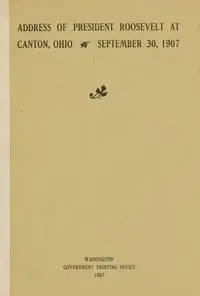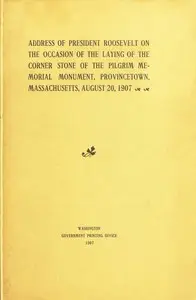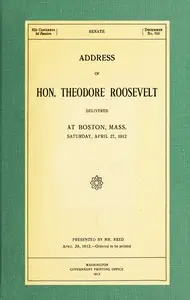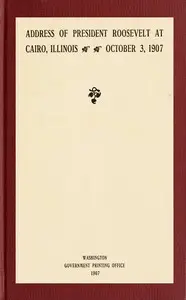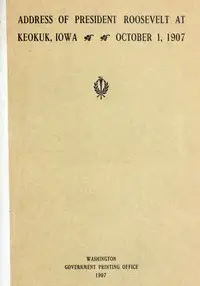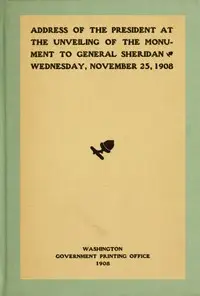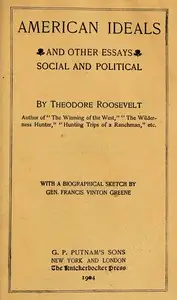"Address of President Roosevelt at the laying of the corner stone of the office building of the House of Representatives" by Theodore Roosevelt, examines the nation's progress and its government's expanding duties, stressing the importance of tackling societal problems with moral strength. Delivered in 1906, Roosevelt's speech explores the role of public conversation and finding a middle-ground between critique and beneficial change, using "Pilgrim's Progress" to describe the risks of focusing only on the negative aspects of society instead of striving for better moral standards. He pushes for honest criticism of corruption in politics and business, while warning against sensationalism that can lead to public disappointment. Roosevelt supports a balanced method of reform, rooted in the desire for societal progress, rather than only in emotional disturbance, ultimately advocating for both individual integrity and group accountability in the pursuit of a fair society.
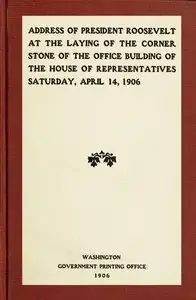
Address of President Roosevelt at the laying of the corner stone of the office building of the House of Representatives, Saturday, April 14, 1906
By Theodore Roosevelt
In a time of national growth, a leader urges for integrity and balance in addressing societal problems, warning against the pitfalls of negativity and advocating for a constructive path towards a just future.
Summary
About the AuthorTheodore Roosevelt Jr., often referred to as Teddy or T. R., was the 26th president of the United States, serving from 1901 to 1909. He previously was involved in New York politics, including serving as the state's 33rd governor for two years. He was the vice president under President William McKinley for six months in 1901, assuming the presidency after McKinley's assassination. As president, Roosevelt emerged as a leader of the Republican Party and became a driving force for anti-trust and Progressive policies.
Theodore Roosevelt Jr., often referred to as Teddy or T. R., was the 26th president of the United States, serving from 1901 to 1909. He previously was involved in New York politics, including serving as the state's 33rd governor for two years. He was the vice president under President William McKinley for six months in 1901, assuming the presidency after McKinley's assassination. As president, Roosevelt emerged as a leader of the Republican Party and became a driving force for anti-trust and Progressive policies.

